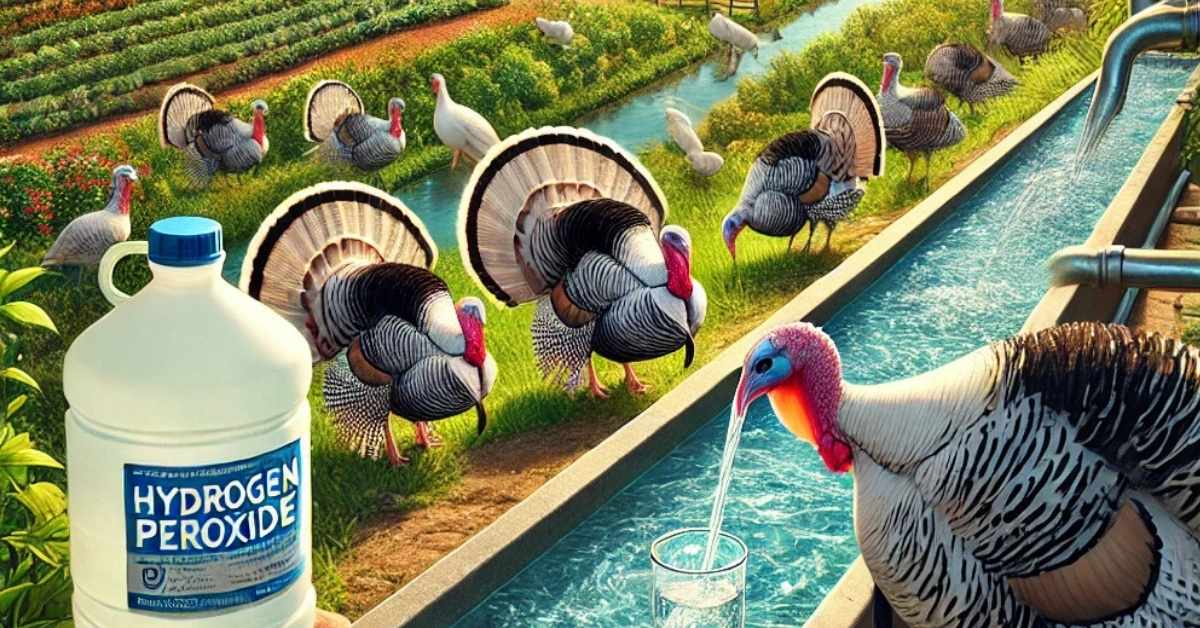Hydrogen peroxide has long been known for its versatility in various industries, from cleaning and disinfecting surfaces to treating wounds. In agriculture, particularly in poultry farming, hydrogen peroxide is increasingly being recognized as a useful tool for promoting the health of birds, including turkeys. One of the emerging applications is its use in turkey water as a means of maintaining clean, safe drinking water and improving the overall health of the birds.
This article explores the environmental and health-related aspects of using hydrogen peroxide in turkey water, its benefits, potential risks, and the role it plays in sustainable farming practices.
1. The Role of Water Quality in Poultry Farming
Water is one of the most critical components in livestock farming, especially in poultry operations. Turkeys, like all poultry, require fresh, clean water to thrive. In large-scale farming operations, maintaining the quality of the water supply is essential for ensuring the health of the birds, improving feed conversion, and preventing the spread of diseases.
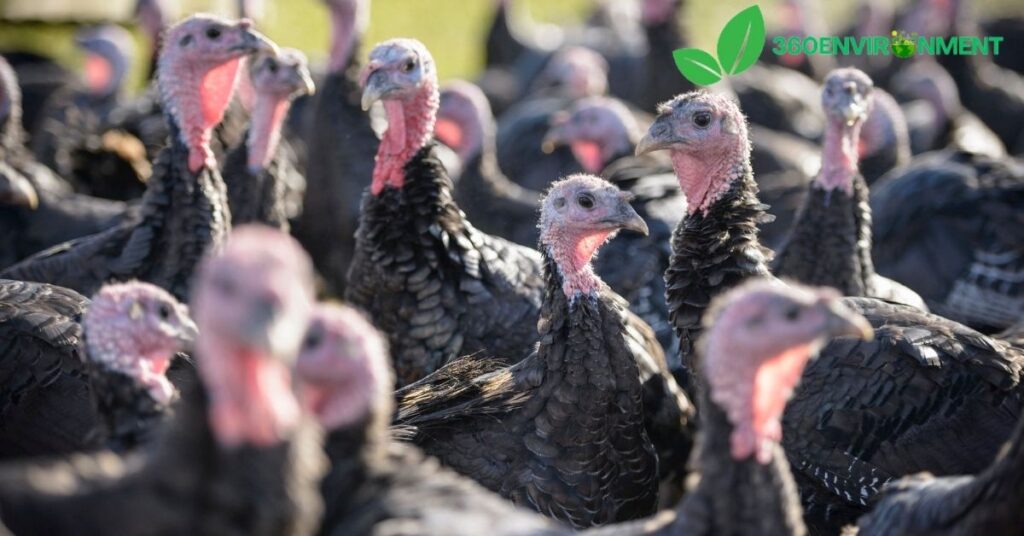
1.1. Water Contamination Issues in Poultry Farms
Water contamination is a major concern in poultry farming, particularly when dealing with large numbers of birds. Contaminants such as bacteria, algae, and biofilm can accumulate in the water supply, leading to health issues for the birds. In addition, organic matter from feed, waste, and even environmental factors can contribute to the degradation of water quality.
Common issues with water quality in poultry farming include:
- Bacterial contamination: Pathogens such as E. coli, Salmonella, and Pseudomonas can thrive in contaminated water, posing serious health risks to turkeys.
- Algae growth: Algae can develop in water storage tanks and distribution systems, negatively impacting the taste and safety of the water.
- Biofilm formation: A biofilm is a slimy layer that forms on the interior surfaces of water pipes and drinkers. It is often a breeding ground for bacteria and other pathogens.
Maintaining high-quality water in turkey farming is essential not only for the health of the birds but also for ensuring optimal growth and production.
2. The Benefits of Using Hydrogen Peroxide in Turkey Water
Hydrogen peroxide (H₂O₂) has gained attention in the poultry industry as an environmentally friendly and effective solution for improving water quality. When used in controlled amounts, hydrogen peroxide can disinfect water, reduce bacterial loads, and prevent the formation of biofilms without introducing harmful chemicals into the environment.
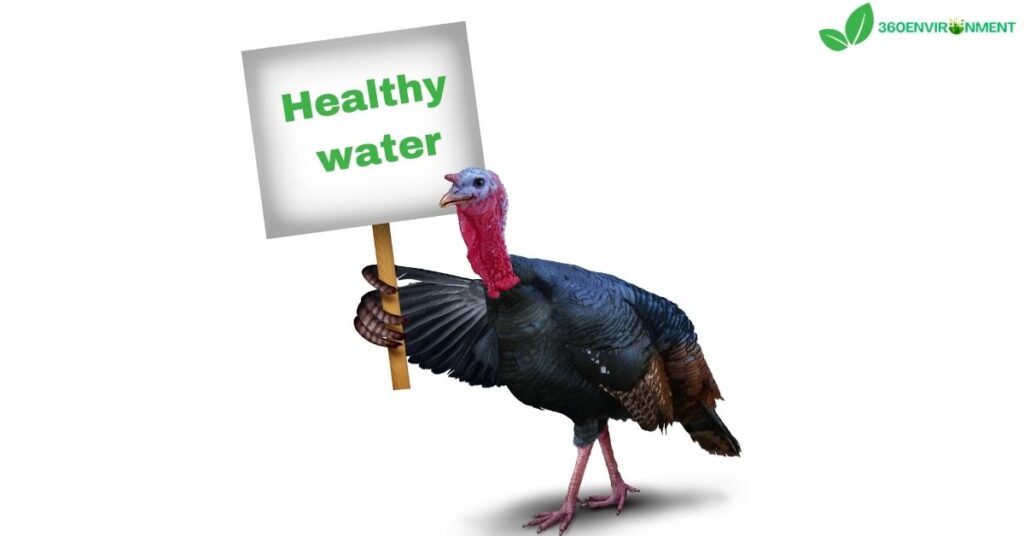
2.1. Disinfection and Algae Control
Hydrogen peroxide is a potent disinfectant that works by breaking down into water and oxygen. This chemical reaction releases free radicals that destroy bacteria, viruses, and other microorganisms in the water. When added to turkey water, hydrogen peroxide can:
- Kill harmful pathogens: Hydrogen peroxide effectively eliminates bacteria such as E. coli and Salmonella, which are common contaminants in poultry water systems.
- Prevent algae growth: The oxidative properties of hydrogen peroxide help to prevent the growth of algae in water tanks and distribution systems, ensuring that the water remains clean and palatable for the turkeys.
2.2. Biofilm Removal
Biofilm can be a significant problem in turkey water systems, as it provides a safe environment for bacteria to thrive. Hydrogen peroxide is particularly effective at breaking down and removing biofilm from the interior surfaces of pipes and drinkers. This is important because:
- Biofilm harbors pathogens: Even if the water appears clean, biofilm can harbor dangerous bacteria that can infect turkeys and compromise their health.
- Improved water flow: Biofilm can restrict water flow in distribution systems, reducing the efficiency of water delivery. Hydrogen peroxide helps to clear biofilm, improving water flow and ensuring that all birds have access to fresh water.
2.3. Oxygenation of Water
One of the key benefits of using hydrogen peroxide in turkey water is the oxygenation it provides. As hydrogen peroxide breaks down into water and oxygen, it increases the dissolved oxygen levels in the water. This has several advantages for turkey health:
- Improved digestion: Higher oxygen levels in the water can enhance the metabolic processes of turkeys, aiding in digestion and nutrient absorption.
- Enhanced immune function: Oxygen-rich water can support the immune system of turkeys, making them more resilient to infections and diseases.
3. Environmental Advantages of Hydrogen Peroxide Use
The use of hydrogen peroxide in turkey water aligns with sustainable farming practices, as it offers several environmental advantages compared to conventional water treatment methods.
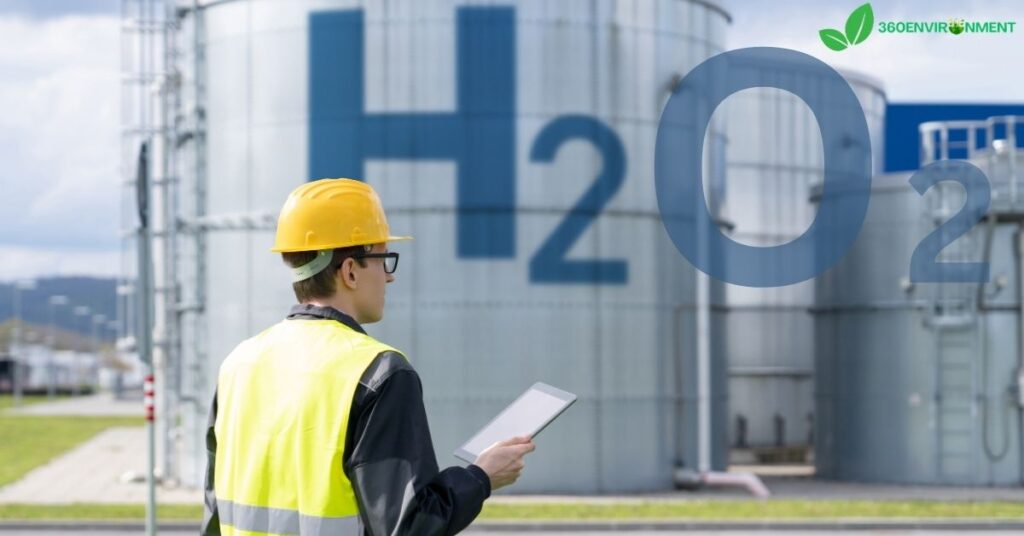
3.1. Biodegradability and Safety
One of the most significant environmental benefits of hydrogen peroxide is its biodegradability. Unlike chemical disinfectants such as chlorine, which can leave harmful residues, hydrogen peroxide breaks down naturally into water and oxygen, making it environmentally safe.
- No harmful residues: After disinfecting the water, hydrogen peroxide decomposes without leaving behind toxic chemicals that could contaminate the environment or harm wildlife.
- Reduced chemical use: By using hydrogen peroxide, farmers can reduce their reliance on synthetic chemicals that may pose environmental hazards, such as chlorine or quaternary ammonium compounds.
This makes hydrogen peroxide an ideal choice for farms that are committed to sustainable and eco-friendly practices.
3.2. Improved Soil and Water Quality
Because hydrogen peroxide does not leave behind harmful residues, it is also beneficial for maintaining soil and water quality around poultry farms. Runoff from farms can carry contaminants into nearby water bodies, affecting aquatic ecosystems. However, the breakdown products of hydrogen peroxide—water and oxygen—do not pose a threat to local waterways.
In addition, because it helps to prevent biofilm buildup and improves water efficiency, hydrogen peroxide can reduce the amount of water wasted in poultry operations, contributing to more sustainable water use.
4. Practical Applications of Hydrogen Peroxide in Turkey Farming
Incorporating hydrogen peroxide into turkey water systems requires careful management to ensure that the correct dosage is applied, as well as regular monitoring to assess water quality.
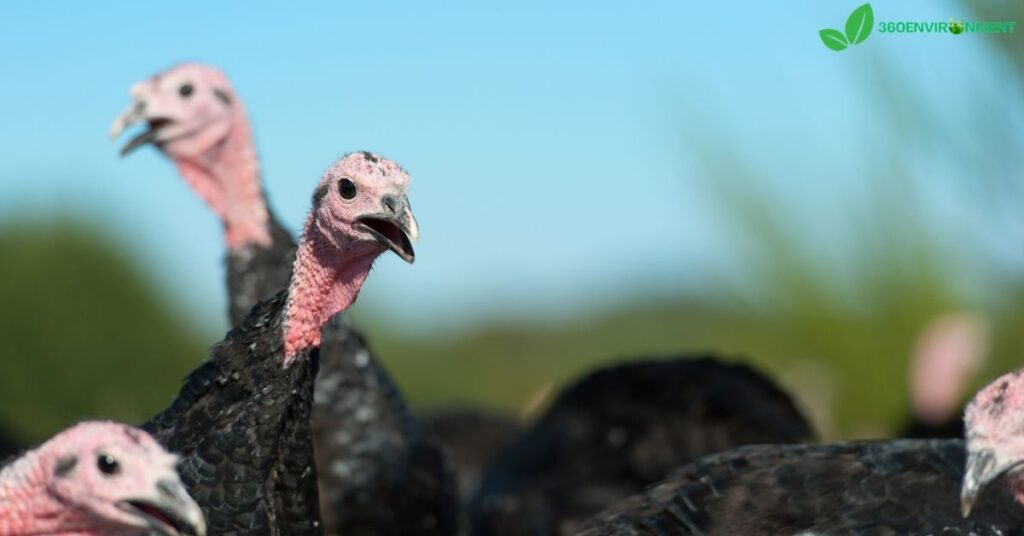
4.1. Dosage and Application
The effectiveness of hydrogen peroxide in turkey water depends on the concentration and the method of application. In most cases, a diluted solution of hydrogen peroxide (typically around 35%) is added to the water system at specific intervals. The recommended dosage may vary depending on the size of the farm, the water source, and the health of the flock.
Farmers should consider the following factors when using hydrogen peroxide in turkey water:
- Concentration levels: It is crucial to use the correct concentration of hydrogen peroxide to ensure that it effectively disinfects the water without harming the birds. Overdosing can irritate the digestive system of the turkeys, while underdosing may not achieve the desired level of disinfection.
- Frequency of application: Hydrogen peroxide may need to be added regularly to maintain optimal water quality, particularly in farms where water contamination is a recurrent issue.
4.2. Monitoring Water Quality
To ensure that hydrogen peroxide is working effectively in the water supply, farmers should monitor water quality on a regular basis. This can be done through simple water tests that measure:
- Bacterial counts: Testing for the presence of bacteria such as E. coli or Salmonella can indicate whether the hydrogen peroxide is effectively controlling contamination.
- Oxygen levels: Measuring the dissolved oxygen levels in the water can help assess the impact of hydrogen peroxide on water quality.
- pH balance: While hydrogen peroxide does not significantly affect the pH of water, it is still important to monitor pH levels to ensure that the water remains within a suitable range for turkey health.
Regular monitoring allows farmers to adjust the dosage and frequency of hydrogen peroxide application as needed to maintain optimal water quality for their turkeys.
5. Health Impacts on Turkeys
Hydrogen peroxide can have several positive effects on the health of turkeys when used properly in their water supply. By improving water quality, reducing pathogen loads, and enhancing oxygen levels, hydrogen peroxide contributes to healthier, more productive flocks.
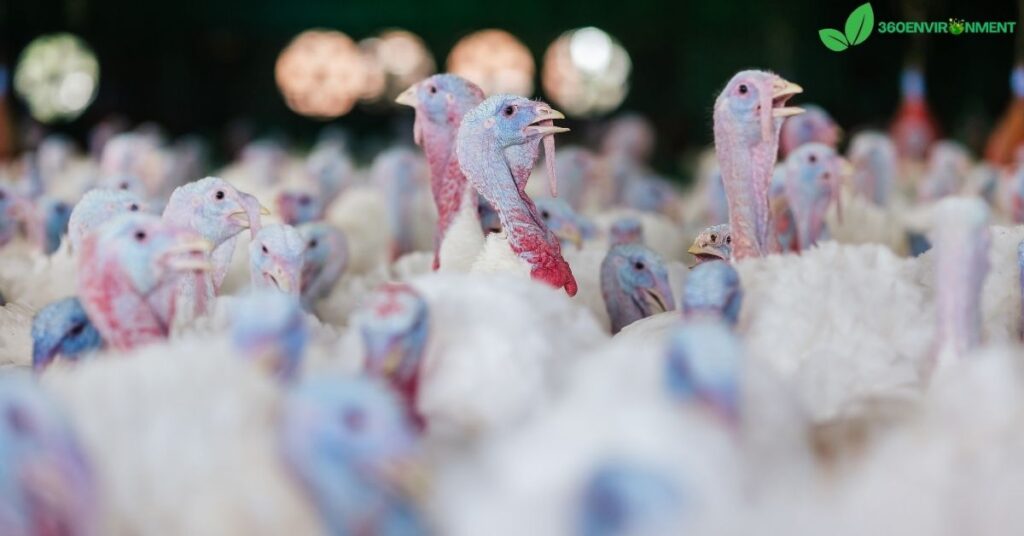
5.1. Disease Prevention
One of the primary benefits of using hydrogen peroxide in turkey water is its ability to prevent diseases. Waterborne pathogens are a common cause of illness in poultry, leading to reduced productivity and, in severe cases, mortality. Hydrogen peroxide helps to control these pathogens by disinfecting the water supply and removing biofilm, which can serve as a reservoir for bacteria.
Diseases such as avian colibacillosis (caused by E. coli) and fowl cholera (caused by Pasteurella multocida) can be transmitted through contaminated water. By reducing the presence of these pathogens, hydrogen peroxide can significantly lower the incidence of such diseases in turkey flocks.
5.2. Improved Digestion and Growth
As mentioned earlier, the oxygenation of water through the breakdown of hydrogen peroxide can have positive effects on turkey digestion and growth. Turkeys that consume oxygen-rich water are better able to metabolize their feed, leading to improved growth rates and overall health.
Enhanced digestion also helps turkeys make more efficient use of nutrients in their feed, which can improve feed conversion ratios and reduce the overall amount of feed required to maintain healthy weight gain.
5.3. Enhanced Immune Function
Turkeys that have access to clean, oxygenated water may also experience improved immune function. A healthy immune system is critical for preventing infections and ensuring the resilience of the flock against diseases. By reducing the burden of waterborne pathogens and supporting overall health, hydrogen peroxide can contribute to stronger immune responses in turkeys.
6. Potential Risks and Considerations
While hydrogen peroxide offers numerous benefits for water quality and turkey health, there are potential risks associated with its use, particularly if not applied correctly. Farmers must be mindful of dosage, safety measures, and the specific needs of their flocks when incorporating hydrogen peroxide into their water systems..
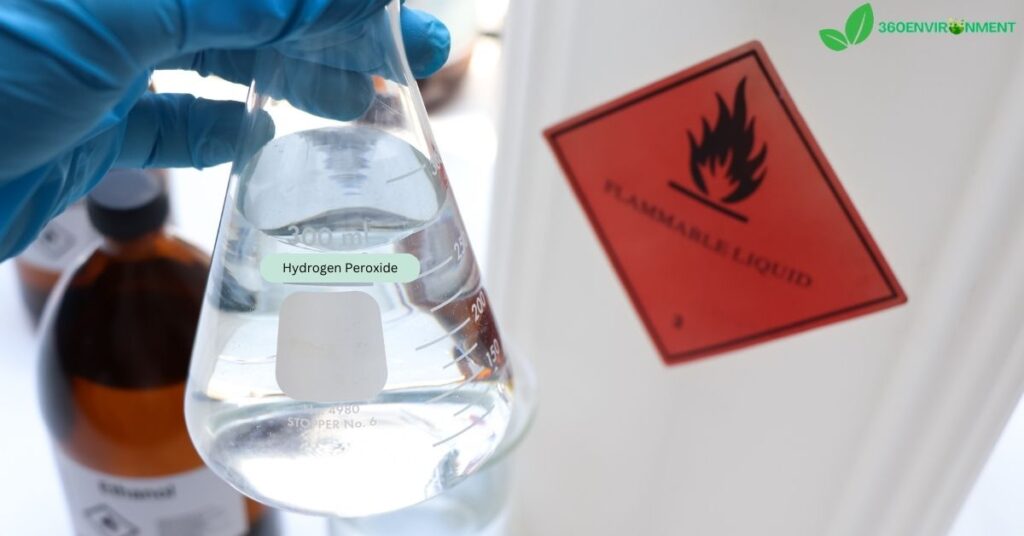
6.1. Risk of Overdosing
One of the main concerns with using hydrogen peroxide in turkey water is the risk of overdosing. If too much hydrogen peroxide is added to the water, it can lead to adverse effects on the birds. High concentrations of hydrogen peroxide can cause irritation to the digestive tract of turkeys, leading to symptoms such as:
- Gastrointestinal distress: Diarrhea or discomfort may occur if turkeys consume water with overly high levels of hydrogen peroxide.
- Reduced water consumption: If the water becomes unpalatable due to a strong peroxide taste, turkeys may drink less, which can lead to dehydration or reduced growth rates.
Farmers must carefully measure the amount of hydrogen peroxide added to the water supply to avoid these issues. Following manufacturer guidelines and consulting with veterinarians or agricultural specialists can help ensure proper application.
6.2. Health and Safety of Farm Workers
Handling hydrogen peroxide requires caution, especially when using higher concentrations such as 35%, which is commonly used in agricultural settings. Concentrated hydrogen peroxide can cause skin irritation, burns, and damage to the eyes if not handled properly. Safety measures for farm workers include:
- Personal protective equipment (PPE): Gloves, goggles, and protective clothing should be worn when handling concentrated hydrogen peroxide to prevent direct contact with the skin or eyes.
- Proper storage: Hydrogen peroxide should be stored in a cool, well-ventilated area, away from direct sunlight and sources of heat. Containers should be kept sealed to prevent spillage or exposure to air, which can degrade the product.
By following these safety protocols, farm workers can minimize the risks associated with handling hydrogen peroxide while ensuring its safe use in turkey water systems.
6.3. Impact on Equipment
Hydrogen peroxide, due to its oxidizing nature, can potentially react with certain materials used in water systems, such as metal pipes, fittings, or drinker components. Over time, prolonged exposure to hydrogen peroxide may lead to:
- Corrosion: Metal components may corrode or degrade when exposed to high levels of hydrogen peroxide, leading to maintenance issues and the need for equipment replacement.
- Wear and tear: While less common, certain types of plastic or rubber materials may also be affected by long-term exposure to hydrogen peroxide, leading to leaks or malfunctions.
Farmers should regularly inspect their water systems for signs of wear or corrosion and consider using materials that are resistant to oxidation, such as stainless steel or certain types of durable plastics.
7. Sustainable Alternatives and Complementary Practices
While hydrogen peroxide offers significant advantages for water quality and turkey health, it is not the only option available to poultry farmers. Many sustainable and eco-friendly practices can complement or serve as alternatives to the use of hydrogen peroxide in water management.
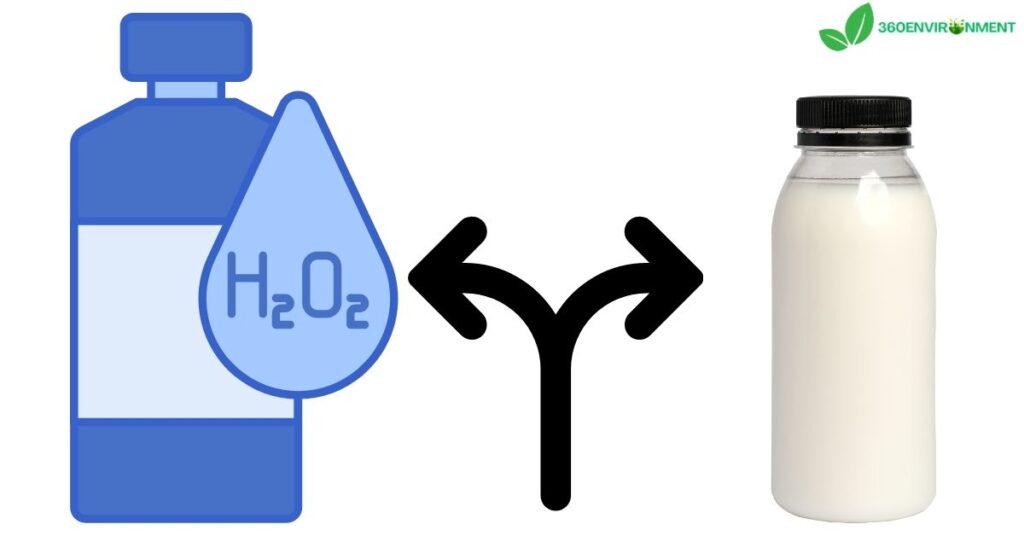
7.1. Ozone Treatment
Ozone is another powerful oxidizing agent that can be used to disinfect turkey water. Similar to hydrogen peroxide, ozone breaks down organic contaminants and pathogens, leaving no harmful residues behind. Ozone treatment systems can be installed to continuously purify water, offering an environmentally friendly alternative to chemical disinfectants.
- Advantages: Ozone provides a high level of disinfection without leaving chemical byproducts in the water. It is particularly effective at breaking down organic matter and preventing biofilm formation.
- Challenges: Ozone systems can be expensive to install and maintain, making them less accessible for smaller farms. Additionally, the effectiveness of ozone is dependent on the specific setup and maintenance of the system.
7.2. Ultraviolet (UV) Water Treatment
Ultraviolet (UV) light is a widely used method of water disinfection that can be applied to turkey water systems. UV treatment works by using ultraviolet light to destroy the DNA of bacteria, viruses, and other pathogens, rendering them inactive. This method is effective for reducing microbial loads without the need for chemicals.
- Advantages: UV treatment does not introduce any chemicals into the water and can be used as a continuous, low-maintenance solution for maintaining water quality. It is particularly effective against bacteria, protozoa, and viruses.
- Challenges: UV systems require regular cleaning and maintenance to ensure that the light source remains unobstructed. Additionally, UV treatment is less effective if the water contains high levels of particulates or organic matter.
7.3. Natural Water Additives
In addition to hydrogen peroxide, there are other natural water additives that can be used to promote water quality in turkey farming. Some of these additives include:
- Vinegar: Adding apple cider vinegar to turkey water can help maintain pH balance and prevent the growth of harmful bacteria. Vinegar is often used in small, organic poultry operations as a natural way to improve water quality.
- Herbal supplements: Certain herbs, such as oregano and thyme, have antimicrobial properties and can be added to turkey water as a natural alternative to chemical disinfectants. These herbs are often used in organic farming to boost the immune system of birds while maintaining water cleanliness.
These complementary practices can work alongside hydrogen peroxide to create a holistic approach to water management that supports both turkey health and environmental sustainability.
8. Conclusion: Hydrogen Peroxide in Turkey Water as a Sustainable Practice
The use of hydrogen peroxide in turkey water is a valuable tool for improving water quality, promoting turkey health, and supporting sustainable farming practices. By effectively controlling pathogens, preventing biofilm formation, and oxygenating the water, hydrogen peroxide contributes to healthier flocks and more efficient poultry production. Its environmentally friendly nature, biodegradability, and lack of harmful residues make it a suitable choice for farms looking to minimize their ecological footprint.
However, proper application, regular monitoring, and adherence to safety protocols are essential for ensuring that hydrogen peroxide is used effectively and safely. By combining hydrogen peroxide with other sustainable water treatment methods—such as ozone treatment, UV filtration, and natural additives—farmers can create a comprehensive water management strategy that supports both animal welfare and environmental conservation.
FAQs
- How does hydrogen peroxide in turkey water improve quality?
Hydrogen peroxide disinfects water by killing bacteria and other pathogens, prevents biofilm buildup, and oxygenates the water for better digestion and immune function. - What is the recommended dosage for using hydrogen peroxide in turkey water?
The typical dosage is a diluted solution (around 35%), but the exact concentration depends on the farm’s size and specific water quality needs. Consulting a veterinarian is advised. - Can hydrogen peroxide in turkey water harm you if you overdose?
Yes, high concentrations of hydrogen peroxide can cause digestive issues and irritation in turkeys. Proper dosing is essential to avoid these risks. - Is hydrogen peroxide in turkey water safe for the environment?
Yes, hydrogen peroxide breaks down into water and oxygen, leaving no harmful residues, making it an environmentally friendly option for poultry farms. - How does hydrogen peroxide reduce biofilm in water systems?
Hydrogen peroxide’s oxidative properties break down biofilm, preventing the buildup of harmful bacteria in pipes and drinkers, ensuring clean water flow. - Does using hydrogen peroxide reduce the need for antibiotics in poultry farming?
By maintaining clean water systems and preventing disease outbreaks, hydrogen peroxide can help reduce the reliance on antibiotics, promoting more sustainable farming practices.
Read More: Blackriver: A Deep Dive into Its Environmental Significance and Role in Ecosystems

